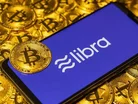Facebook Libra: what is it, and is it safe?

Facebook's new Libra cryptocurrency is set to start trading soon, with the aim of building a more inclusive global financial system
Facebook, Spotify, Uber, and PayU - just some representatives of the Libra Association, which consists of venture capital firms and non-profit organisations spanning the telecommunications and blockchain networks.
The grand vision of the Association is to build “a stable cryptocurrency built on a secure network… [for a] more inclusive global financial system”.
Libra hopes to achieve this by hooking up the millions of ‘unbanked’ people worldwide - that is, people with no ability to transfer money instantly across the world, securely and at low cost.
How Libra works
Libra will run on a blockchain of around 100 different computer servers. The blockchain algorithms have ‘command-line programs’ to enable scripting and interactive use, along with an interface of various file formats and options.
To make things extra secure, Libra uses the ‘Byzantine fault-tolerant consensus approach’.
In theory, the Byzantine consensus should make it near impossible for the entire blockchain to be disrupted, even if the servers are compromised.
For a cyber attack to bring down the blockchain, it is reckoned up to a third of its servers would have to be interrupted - a feat that the Libra Association is confident is near impossible, as each server will be well secured by each of its partners.
Furthermore, Libra is thought to be capable of 1,000 payments per second, making it around 500 times more efficient than Bitcoin.
Regulatory concerns
The United States government is not convinced, however.
It already does not like the strength of the other cryptocurrencies in use today. In an attempt to win them over, the Association has marketed Libra as a “stablecoin” that is especially friendly to regulators.
SEE MORE:
But, the danger is that Libra is intended to be used as collateral by some debt obligations and currencies.
Libra’s status as a global currency means it will also fluctuate like other currencies, and differently. It may even resemble something like an index in volatility if it is shaped by underlying assets.
If it becomes too popular, it could be "Too Big To Fail” - a phrase that still haunts us from 2008. If there was ever a run on Libra, there would be no Libra Central Bank to fix the damage.
Is there a place for Libra?
One way to absolve these concerns comes from the Association of German Banks, which has suggested limiting Libra to payment transfers only, and preventing it from handing out loans. But this would undermine the Libra’s ambitions.
Despite the concerns, it seems the establishment banking system is prepared to accommodate Libra and other forthcoming “soft infrastructures” as other central banks have already agreed to make concessions, as long as there are clear regulations and rules.
This article was written by Glenn King of Oakmount Partners Ltd, an investment consultancy firm based in the United Kingdom.
For more information on all topics for FinTech, please take a look at the latest edition of FinTech magazine.

